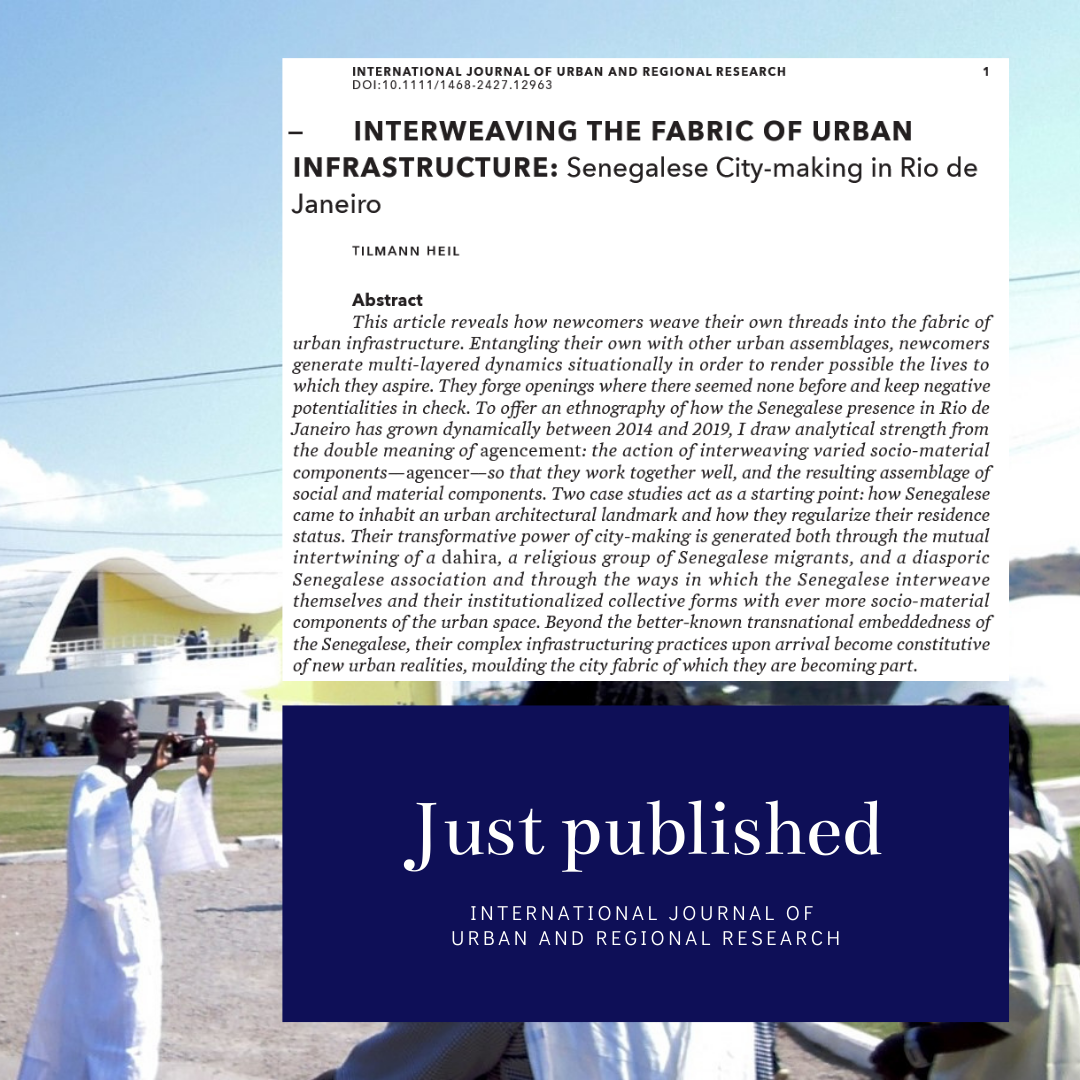It's a long journey that comes to an end as an #openaccess article in IJURR (doi.org/10.1111/1468-2427.12963).
I was fascinated how newcomers make the city according to their tastes, needs, visions, and projects weaving threads together that have not been connected before. I focus on the action of interweaving - or agencer - in which they connect themselves and their collective forms of organization to religious, social, political and material elements of urban space. First and foremost, I thank my interlocutors with whom I learned about the multiple Rios that emerge from complex lives lived in the multiple tensions in place.
The article sheds light onto the process of arrival that is at the basis of my project Valued Difference that I have developed over the last years in Rio de Janeiro, on which you can read here.
I was fascinated how newcomers make the city according to their tastes, needs, visions, and projects weaving threads together that have not been connected before. I focus on the action of interweaving - or agencer - in which they connect themselves and their collective forms of organization to religious, social, political and material elements of urban space. First and foremost, I thank my interlocutors with whom I learned about the multiple Rios that emerge from complex lives lived in the multiple tensions in place.
The article sheds light onto the process of arrival that is at the basis of my project Valued Difference that I have developed over the last years in Rio de Janeiro, on which you can read here.
